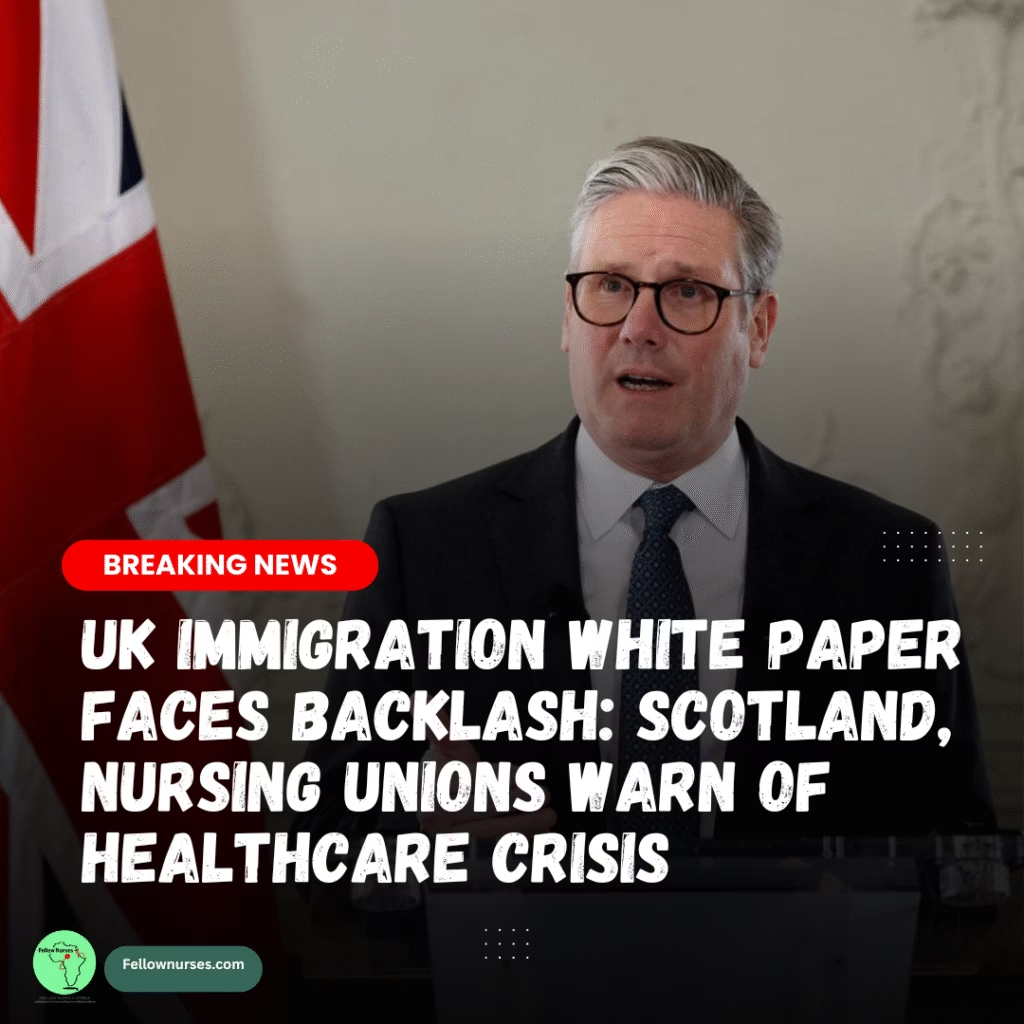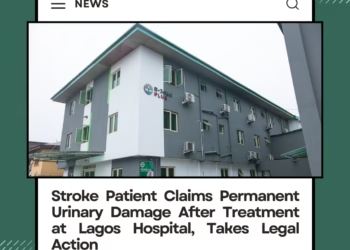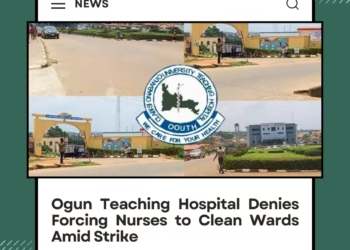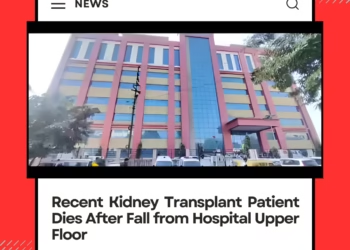London, May 14, 2025 – The UK government’s Immigration White Paper, announced by Prime Minister Sir Keir Starmer on May 12, 2025, has sparked intense criticism from the Scottish government, nursing unions, and care sector leaders. The policy, which aims to reduce net migration through stricter visa regulations, is accused of threatening the stability of the NHS and social care sectors, potentially exacerbating the ongoing healthcare staffing crisis.

The White Paper outlines several key measures: an immediate halt to overseas recruitment for social care visas, increased English language proficiency requirements, and a requirement for skilled worker visas to meet graduate-level qualifications. Additionally, the citizenship eligibility period for most migrants is extended to 10 years, though “high-contributing” roles, such as nursing, may qualify for expedited pathways. A transition period allows existing visa holders to extend their stay until 2028, but critics argue this is insufficient to address the immediate workforce shortages in healthcare.
Scottish Government Raises Alarm
The Scottish government has strongly opposed the White Paper, warning of its detrimental impact on Scotland’s healthcare system and demographic needs. Deputy First Minister Kate Forbes called the proposals “baffling,” highlighting Scotland’s reliance on migrant workers to support an aging population and fill critical roles in care and health services. “These restrictions will severely undermine our care system, leading to increased pressure on the NHS, including longer waiting lists and bed-blocking,” Forbes stated. First Minister John Swinney criticized the UK government’s approach as disconnected from Scotland’s needs, reiterating demands for a Scottish-specific visa to address regional workforce shortages. Scotland currently faces 6,000 vacant nursing posts and a 9% vacancy rate in the care sector, amplifying concerns about the policy’s consequences.
Nursing Unions Condemn Reforms
Nursing organizations, including the Royal College of Nursing (RCN) and UNISON, have denounced the White Paper as a direct threat to patient care. Professor Nicola Ranger, RCN Director, described the reforms as “misguided,” arguing that they unfairly target migrant workers who are integral to the NHS. Ranger called for the removal of the “no recourse to public funds” rule, reduced immigration fees, and indefinite leave for nursing staff to ensure workforce retention. “The NHS depends on international workers to deliver safe care,” she said. UNISON General Secretary Christina McAnea warned that restricting care worker recruitment would “place unbearable strain on the NHS,” given the sector’s 131,000 existing vacancies. Both unions emphasized that the government’s plans lack a credible strategy to train and retain domestic workers at the scale required.
Care Sector Warns of Dire Consequences
Care sector leaders have labeled the visa restrictions a devastating blow to an already struggling industry. Professor Martin Green, Chief Executive of Care England, criticized the policy as a “short-term political move” that ignores the sector’s dependence on migrant workers. “Without access to international staff, care homes risk closure, and vulnerable people will lose essential support,” Green warned. Robert Kilgour, Chairman of Renaissance Care, noted that approximately one-third of his workforce comprises overseas workers, describing the reforms as a “critical threat” to service delivery. The care sector, still recovering from post-Brexit staffing challenges and chronic underfunding, faces significant hurdles in recruiting domestically without substantial government investment.
Healthcare at a Crossroads
The White Paper’s focus on reducing migration has reignited tensions between immigration control and healthcare sustainability. Migrant workers constitute roughly 10% of Scotland’s care workforce and a significant portion of NHS staff, making their contributions vital to patient safety and service delivery. While the government has committed to enhancing domestic training programs, critics argue that these initiatives will take years to yield results, leaving the healthcare system vulnerable in the interim. The transition measures, such as visa extensions for current workers, are widely seen as inadequate to bridge the gap.
The Scottish government, nursing unions, and care leaders are urging the UK government to reconsider the White Paper’s approach, advocating for policies that balance immigration objectives with the urgent needs of the healthcare sector. Without immediate action to address staffing shortages and support international workers, they warn, the reforms could precipitate a healthcare crisis with far-reaching consequences for communities across the UK.
Fellow Nurses Africa is the independent voice of African nursing. We educate, inform, and support the nursing workforce










